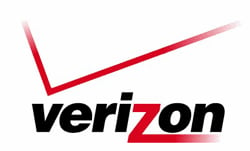This article is more than 1 year old
Judge orders cybersquatter to pay Verizon $33m
Massive default damages ruled acceptable
A federal court in California has upheld a massive $33.15m penalty against a cybersquatting domain aggregator that registered hundreds of websites mimicking Verizon's name and trademarks.

The Reg reported on the initial ruling back in December 2008, suspecting that the American telco had a slim chance of ever finding the people responsible to collect. Verizon had been awarded the judgment against OnlineNIC by default after failing to locate any of its employees to serve a summons.
Court documents later revealed that Verizon's counsel claims to have been telephoned by OnlineNIC's president Rex Liu just days before the default judgment was granted. The Verizon attorney alleges Liu discussed settling the matter out of court, but said the company would not pay any substantial sum of money and would likely ignore the case even if an adverse judgment were entered.
Despite contacting Verizon's counsel by phone, OnlineNIC failed to appear before the court until February 2009 when it filed a motion for relief from the judgment. Liu claims the five-month delay was due to him forgetting about the package containing the summons and having a poor understanding of the US legal system.
The court eventually decided to hear OnlineNIC's argument against he decision even though it found no grounds for setting aside the default judgment.
Verizon accused OnlineNIC of using an automated process to register websites such as verizononline.com, accountverizonwireless.com, and iphoneverizonplans.com. The phony Verizon sites hosted ad links and pop-under advertisements that resulted in revenue for OnlineNIC.
But the cybersquatter argued that damages of $33.15 million were vastly disproportionate to any actual harm suffered by Verizon or profit earned from the offending domain names. The company said it had only derived $1,468.60 in profit from the 663 infringing domain names.
It further countered only a jury trial could address the issue of what amount of damages are appropriate (based on the Seventh Amendment of the US Constitution granting the right of trial by jury in certain civil trials if the damages exceed twenty dollars).
But United States District Judge Jeremy Fogel on Tuesday ruled OnlineNIC has no entitlement to a jury trial for determining the statutory damages. Fogel also rejected OnlineNIC's claims that Verizon's claimed damages from cybersquatting were heavily inflated.
"OnlineNIC's reference to its alleged profit fails to take any account of the damages suffered by Verizon in the form of a likelihood of confusion surrounding Verizon's marks and the diversion of internet traffic to websites selling rival products," Fogel wrote in his decision. "Moreover, OnlineNIC has made multiple false or misleadingly incomplete representations to Verizon and the Court over the course of this litigation, making it exceedingly difficult to accept OnlineNIC's present representations as credible."
The judge also ordered OnlineNIC to pay Verizon its attorneys' fees and cost in addition to damages.
Verizon calls the case "the largest cybersquatting judgment ever," but the telco is still unlikely to ever see much of that $33 million. "We hope the court's decision goes a long way toward protecting consumers from becoming targets of Internet abuses and frauds," said Verizon counsel Sarah Deutsch in a statement.
The damages — like those imposed against some unlucky convicted file-sharers — are all for show, although admittedly it's quite a bit harder to feel sorry for the likes of OnlineNIC. ®
